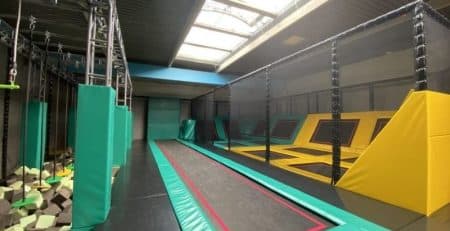Do standards matter?
 Standards have a bad reputation: in agriculture, industry, and commerce, unions complain about overly stringent, numerous, and sometimes contradictory rules. Even the French government bemoans the complexity of regulations: “too many standards kill growth,” declared French Economy Minister Bruno Le Maire in April 2024. Simplification is on the way.
Standards have a bad reputation: in agriculture, industry, and commerce, unions complain about overly stringent, numerous, and sometimes contradictory rules. Even the French government bemoans the complexity of regulations: “too many standards kill growth,” declared French Economy Minister Bruno Le Maire in April 2024. Simplification is on the way.
The same complaints are heard in other European countries and in the United Kingdom, which as early as 2010 implemented “one in, two out,” and even “one in, three out” in 2015, to remove two standards for every new one created.
Standards: harmful or beneficial for business?
So, are standards detrimental to business? Quite the opposite!
In the leisure activities sector, standards have helped reduce the number of serious accidents, secure equipment, organize supervision, manage flows, conduct inspections and maintenance, and limit risks for both players and operators.
France was a pioneer in regulating collective playgrounds, with the first standard arriving in 1988 (standard S54-201), followed by a decree in 1994 (no. 94-699 of August 10, 1994). With operators required to comply with standards, the number of serious accidents significantly dropped, and deaths due to equipment disappeared.
The consequences of a lack of standards
 When trampoline parks emerged in Europe in the early 2010s, there were no regulations. The standard for sports trampolines was not applicable, nor were those for playgrounds. In France, there was only the general safety obligation: “Products and services must present the safety one can legitimately expect under normal conditions of use or other reasonably foreseeable conditions by the professional and must not endanger the health of people.” But how to know what to do in a new activity and how to prove “legitimate safety”?
When trampoline parks emerged in Europe in the early 2010s, there were no regulations. The standard for sports trampolines was not applicable, nor were those for playgrounds. In France, there was only the general safety obligation: “Products and services must present the safety one can legitimately expect under normal conditions of use or other reasonably foreseeable conditions by the professional and must not endanger the health of people.” But how to know what to do in a new activity and how to prove “legitimate safety”?
This led to trampoline parks opening with performance trampolines without any supervision, and the number of accidents rose alongside the number of new parks. A park in eastern France held the record for serious accidents (requiring the arrival of firefighters): little staff, no supervision, children left alone on trampolines… Firefighters intervened more than 18 times per week on average! The DDPP (Departmental Directorate for the Protection of Populations) had no legal basis to close this park. After a few months of operation, most families in the region had a child or knew someone injured during a session at the trampoline park. The market was devastated.
As a result, the new trampoline park that opened in the same area a few months later, with proper supervision and a suitable safety policy, took several years to convince families to visit and balance its accounts.
Thus, the introduction of French experimental standards (XP S52-370) and then European standards (ISO EN 23659) regulated the activity and drastically reduced the number of accidents. The market is now developing normally, and the DDPP can control parks and possibly close dangerous operations that harm both players and the entire sector.
The importance of standards
So yes, standards are essential for regulating an activity. They are necessary to determine the minimum or optimal level of safety needed to ensure user safety. They allow operators to choose activities based on the risks involved and the resulting obligations. For example, high rope courses with continuous lifelines require fewer staff because players are always attached.
Standards also ensure equipment compliance, enhance safety levels, and protect users and operators in case of accidents. An operator with equipment meeting standards can demonstrate they have implemented “the safety one can legitimately expect” and can therefore avoid liability.
Advice for operators
 We strongly advise all project leaders and leisure park operators to closely follow regulations and comply with existing standards.
We strongly advise all project leaders and leisure park operators to closely follow regulations and comply with existing standards.
As experts involved in various standardization committees, Play In Business advises on equipment selection, safety requirements, supervision obligations, and necessary maintenance to help you make the best choices for your operation.






























